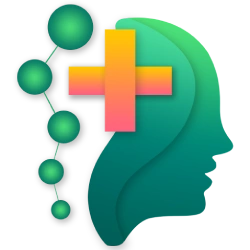Cognitive Behavioral Therapy (CBT)
“Transform your thoughts, rewrite your path: CBT illuminates the way to a brighter, more resilient you.”
Cognitive Behavioral Therapy (CBT)
Cognitive Behavioral Therapy (CBT) is a widely used form of psychotherapy that emphasizes the relationship between thoughts, feelings, and behaviors. It aims to help individuals recognize and change unhelpful patterns of thinking and behavior that contribute to psychological distress. By addressing maladaptive thoughts and behaviors, CBT seeks to promote positive coping strategies and improve emotional well-being.
When Cognitive Behavioral Therapy is used?
- Depression
- Anxiety
- Panic attacks
- Stress
- Chronic pain
- Post-Traumatic Stress Disorder
- (PTSD)
- Addiction-related problems
- Obsessive-Compulsive Disorder (OCD)
- Phobias
- Eating disorders
- Sleep disturbances
How does CBT work?
During CBT treatment, individuals seeking help collaborate with mental health professionals, such as psychotherapists or clinical psychologists, in a structured manner over several sessions. Together, they identify underlying issues and tailor a CBT treatment plan with appropriate coping strategies. Throughout the sessions, individuals are assigned tasks and exercises to develop healthy coping skills and manage their emotions, thoughts, and behaviors. By learning to break negative thought cycles, individuals gain clarity in challenging situations and respond more effectively.
Self-help sessions within CBT programs aid in understanding and alleviating various disorders and symptoms. CBT is often preferred for its low risk compared to medication and other treatments, making it effective for various mental health conditions, including depression. CBT is particularly beneficial when individuals engage in harmful thought patterns leading to problematic behaviors, consciously or unconsciously. By actively analyzing and managing their thoughts, individuals gain control over their emotions, intertwining feelings and thoughts. It’s a versatile therapy used to address a range of conditions and unhealthy coping mechanisms.
How many sessions are needed for Cognitive Behavioral Therapy?
CBT treatment is relatively brief compared to other therapy types, typically lasting between 8 to 15 sessions on average. However, the duration may vary depending on individual needs and circumstances. Sessions can be conducted individually or in a group format.
What will happen in the Cognitive Behavioral Therapy session?
- Assessment and Goal Setting: Introduction, assessment of issues, setting therapy goals.
- Psychoeducation: Understanding CBT principles and how thoughts, feelings, and behaviors are connected.
Identifying Thoughts and Beliefs: Learning to recognize automatic thoughts and underlying beliefs.
Challenging Cognitive Distortions: Examining and disputing irrational thoughts and beliefs. - Behavioral Experiments and Skill Building: Testing new behaviors and learning coping skills.
- Review and Integration: Reflecting on progress, and adjusting strategies if needed.
- Termination and Follow-Up: Summarizing progress, discuss relapse prevention, and plan for future support if necessary.
What will CBT Therapists do?
Initially, the first sessions of Cognitive Behavioral Therapy (CBT) focus on ensuring it’s the right fit for you and that you’re comfortable with the process. The therapist conducts an assessment, asking about your life, background, and how your issues affect various areas like family, work, and social life. If CBT is deemed appropriate, the therapist explains what to expect from treatment.
In subsequent sessions, you and your therapist work together to break down problems, analyzing thoughts, feelings, and behaviors. The therapist helps you identify unrealistic or unhelpful thoughts and behaviors, and then guides you in making changes. Homework assignments may be given to practice these changes between sessions.
Your therapist supports you in confronting fears and anxieties at a pace you’re comfortable with. Progress is discussed at each session, and adjustments are made as needed. The skills learned in CBT can be applied to daily life even after therapy ends, reducing the likelihood of symptoms returning.
What are the benefits of Cognitive Behavioral Therapy?
- Effectiveness: CBT has been extensively researched and shown to be effective in treating various mental health conditions, including depression, anxiety disorders, PTSD, and more.
- Short-term: Unlike some forms of therapy that may require long-term commitment, CBT is typically brief, with noticeable improvements often seen within a few sessions.
- Focused and Structured: CBT provides a structured framework for addressing specific issues and developing practical coping strategies, making it easier to track progress.
- Empowerment: By teaching individuals to recognize and challenge negative thought patterns and behaviors, CBT empowers them to take an active role in managing their mental health.
- Adaptability: CBT techniques can be adapted to suit individual needs and preferences, allowing for personalized treatment plans.
- Skills-building: CBT equips individuals with a toolkit of practical skills and techniques they can use to manage symptoms and cope with stressors even after therapy has ended.
Dr. Nishtha Dalwani is a top psychiatrist and psychotherapist in Mumbai, known for her expertise in Cognitive Behavioral Therapy (CBT). With care and experience, she helps people manage their mental health issues effectively, leading to positive changes in their lives. Book an appointment with Dr. Nishtha Dalwani for personalized CBT therapy and a better future.

